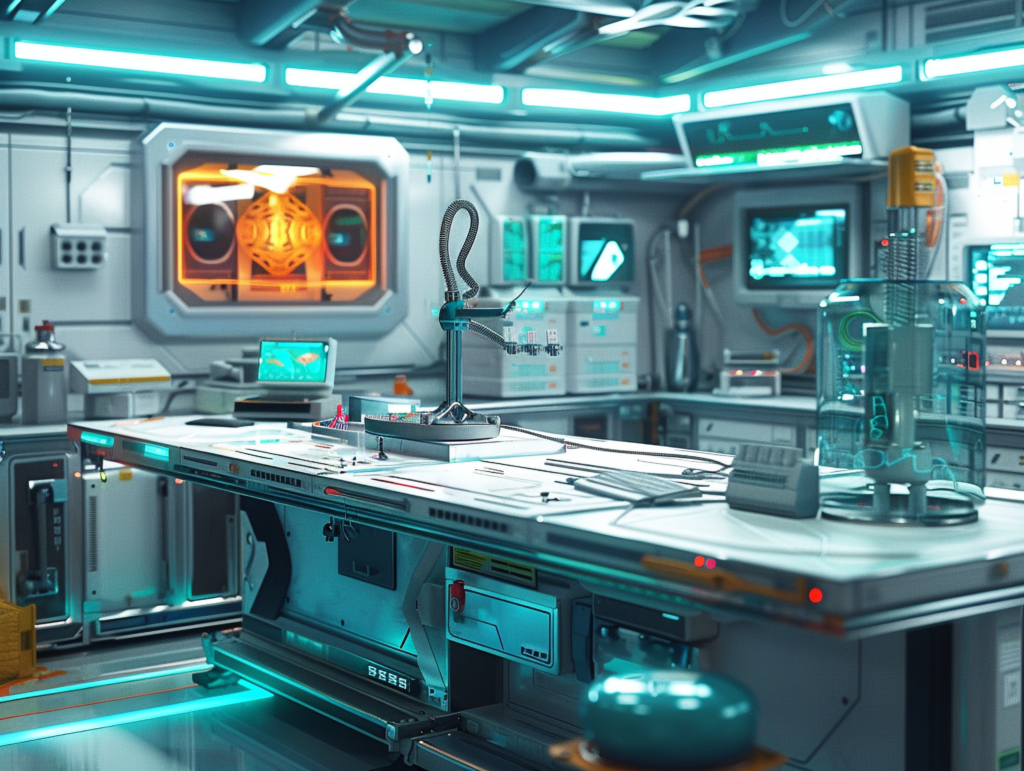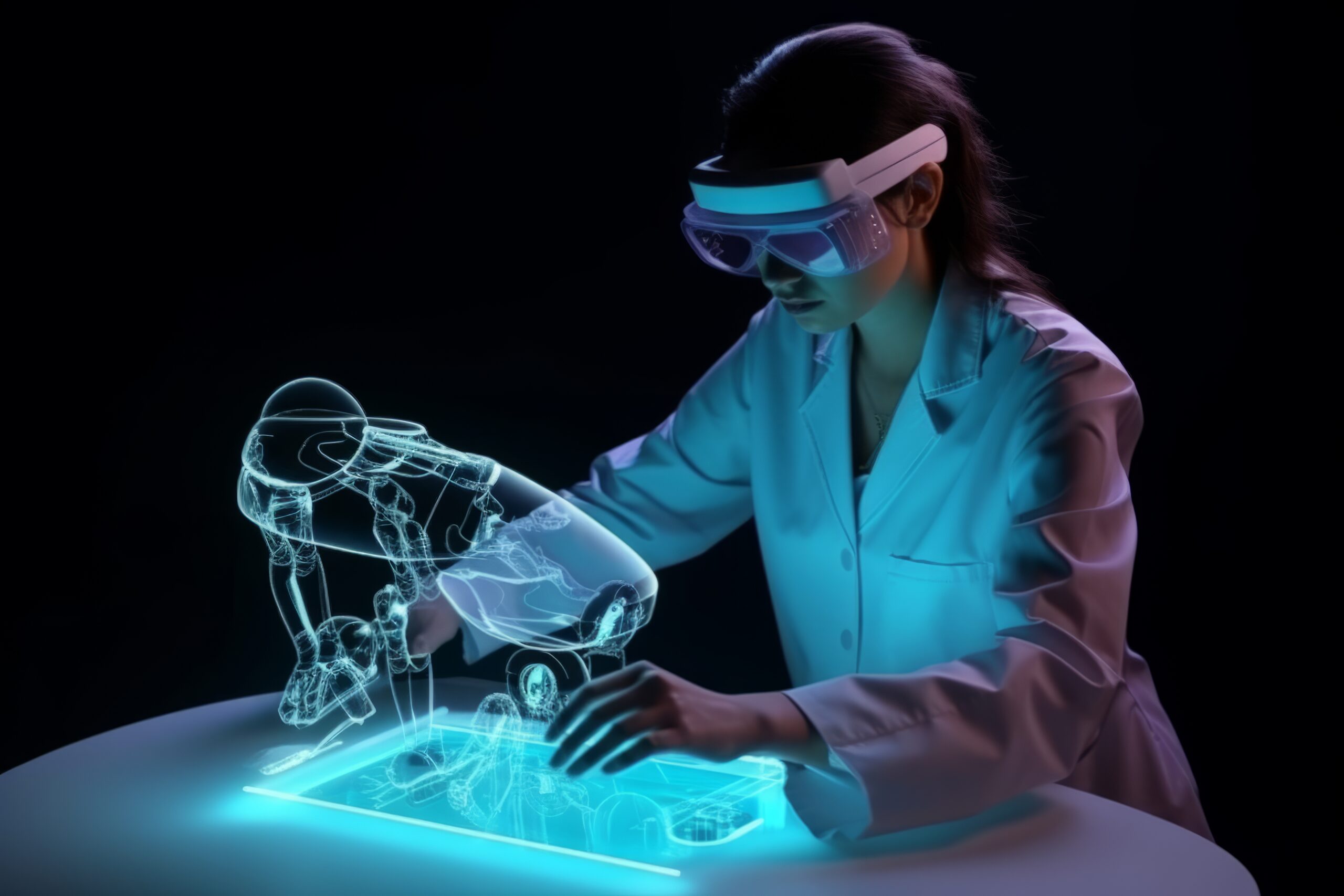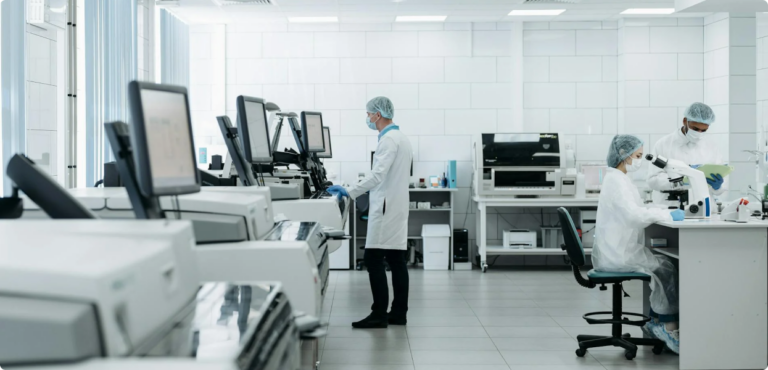In recent years, the medical device industry has grown exponentially, driven by advancements in technology and an increasing global demand for healthcare solutions. However, with growth comes a set of complex challenges, especially when it comes to ensuring quality, safety, and regulatory compliance in manufacturing. Manufacturers face substantial obstacles, from defect detection to maintaining high standards in quality assurance. In response, artificial intelligence (AI) is emerging as a transformative solution, offering innovative approaches to streamline processes, minimise defects, and ultimately protect patient safety.
AI Solutions to Key Challenges in Medical Device Manufacturing
- Quality Assurance and Defect Detection
- Description: Ensuring product quality is a top priority in medical device manufacturing, yet manual inspections are often time-consuming and prone to error. Even minor defects can lead to serious patient safety issues and costly recalls.
- How AI Can Help: Computer vision and machine learning algorithms can automatically detect defects in medical devices with high accuracy. These AI-driven inspection systems scan for defects in real-time, providing consistent quality control that surpasses human inspection capabilities. For instance, Akridata’s inspection models are specifically designed to catch potential defects early, enhancing reliability and safety.
- Complexity of Device Components
- Description: Medical devices often comprise intricate components made from various materials. This complexity increases the risk of defects and makes quality control more challenging.
- How AI Can Help: AI-powered solutions can manage data from different sensors and sources to detect anomalies across complex components. Akridata offers an overview of your production line with statistics related to accuracy and defect count per station.
- High Costs Associated with Product Recalls
- Description: Medical device recalls are not only financially damaging but can also harm a company’s reputation and customer trust. According to recent data, hundreds of millions of medical devices are recalled every year due to defects that could have been detected earlier in the manufacturing process.
- How AI Can Help: AI can reduce recall rates by enhancing defect detection processes. Akridata’s advanced algorithms can identify early signs of potential defects that may lead to recalls, allowing manufacturers to address issues before products reach the market. This not only saves money but also preserves the company’s reputation and protects patient safety.
- Shortage of Skilled Workforce for Advanced Inspections
- Description: Medical device manufacturing requires highly skilled workers for inspection and quality assurance tasks. However, the shortage of skilled labor can lead to delays, increased costs, and compromised product quality.
- How AI Can Help: Akridata’s AI-based inspection solutions can help bridge this gap by automating complex inspection processes, reducing the reliance on manual labor. AI-powered systems are especially beneficial in maintaining consistent quality standards, can work at higher speed and allow companies to focus their human resources on other critical tasks.
How Akridata Solves Manufacturing Challenges

Akridata offers solution on various fronts:
- Building a dataset for a vision model training
Modern inspection systems rely on clean datasets to train and test their deep learning models on. We offer various ways to curate raw data, select the relevant images, add labeling and create a clean dataset for training & testing purposes.
This is done via data clustering & visualization, allowing you to focus on the relevant subset of images, through various search techniques to find specific examples and of course fast & reliable labeling. - Enhance a dataset with high quality synthetic data
Defects are rare, which is usually a great thing, but when it comes to training a model, you want it to learn from real examples. When there are too few of those, Akridata can generate high quality synthetic data that mimics real defects. This data is then compared to the real examples to assure standards are maintained, and once confirmed, added to the dataset for training and testing. - Model Training
Once a dataset is ready it’s time to train your model. Akridata offers the infrastructure, the models, and an intuitive interface to run training–testing cycles, and even a builtin framework to analyze model’s behavior.
Conclusion
The medical device manufacturing industry faces numerous challenges, from regulatory compliance to quality assurance and defect detection. AI technology offers solutions to these problems, enabling manufacturers to improve product quality, reduce costs, and ensure compliance with industry standards. By implementing AI-driven tools, companies can overcome workforce limitations, enhance data management, and prevent costly recalls.
For manufacturers ready to lead in a highly regulated market, embracing AI solutions like those offered by Akridata can be a game-changer. With the right technology and data-driven approach, the medical device industry can ensure patient safety, meet regulatory demands, and maintain a competitive edge.




No Responses